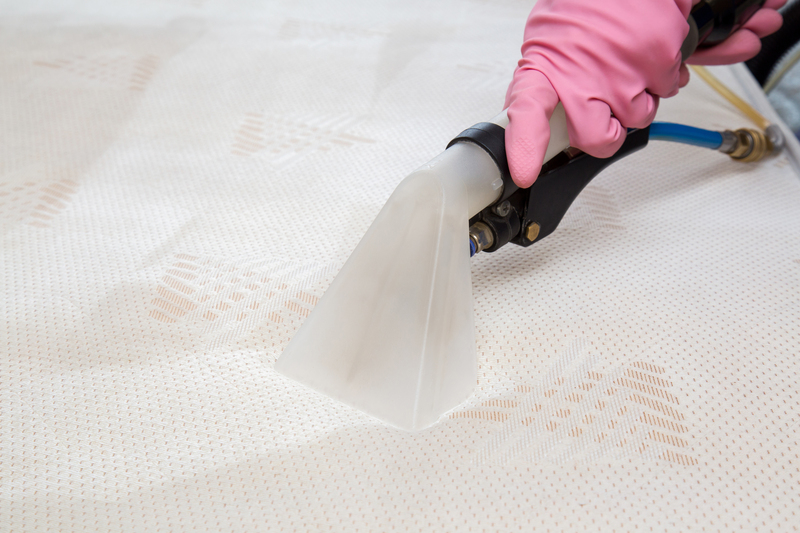Dazzling Details: Mastering Jewellery Cleaning Methods
Learn how to revive your jewelry's brilliance with effective, safe, and modern techniques. Whether you're planning to clean your diamond engagement ring or bring back the shine to your favorite pearls, this comprehensive guide covers the best tips and tricks for jewellery cleaning methods at home.
Why Jewellery Cleaning Is Essential
If you want your jewellery to maintain its beauty, regular cleaning is vital. Everyday activities expose your rings, necklaces, and earrings to dust, sweat, lotions, and environmental pollutants. Over time, grime and residue accumulate, dulling gemstones and tarnishing metals.
- Preserves brilliance: Regular cleaning restores shine and sparkle.
- Prevents damage: Dirt can scratch delicate gems and compromise settings.
- Hygiene: Bacteria and germs can build up, especially on pieces worn daily.
- Longevity: Clean jewellery is less likely to suffer from wear and tear.
Understanding the appropriate jewellery cleaning techniques ensures your treasures stay as mesmerizing as the day you received them.

Understanding Your Jewellery
Before diving into cleaning, it's crucial to identify the materials and stones in your jewellery. Each type--from diamonds to pearls, gold to platinum--requires unique care to avoid accidental damage.
Common Jewellery Materials & Their Characteristics
- Gold: Soft and prone to scratching; avoids abrasive cleaners.
- Silver: Tarnishes easily but is otherwise durable.
- Platinum: Tough but can lose its polish and develop small scratches.
- Gemstones: Vary drastically in hardness. Diamonds are robust, whereas opals and pearls are delicate.
Knowing your piece's composition is the first step in mastering jewellery cleaning methods.
Essential Tools for Cleaning Jewellery
Equipping yourself with the right tools will ensure safe and effective cleaning. Here are some items to keep handy:
- Soft-bristled toothbrush: Perfect for reaching crevices and loosening dirt.
- Lint-free cloth or microfiber towel: Prevents scratching and helps dry jewellery gently.
- Mild dish soap: A staple for most at-home cleaning recipes.
- Bowl of warm water: Dissolves grime without damaging most stones or metals.
- Jewellery polishing cloth: Imparts shine and removes tarnish from metals.
- Ultrasonic jewellery cleaner (optional): For professional-level cleaning at home (see below for stone-specific warnings).
- Ammonia-free glass cleaner: Effective for diamonds and hard stones only.
Proven Jewellery Cleaning Methods
1. Basic Home Cleaning for Most Jewellery
The most reliable all-purpose method involves gentle cleaning suitable for most stones and metals.
- Soak: Fill a bowl with warm (not hot) water. Add a few drops of mild dish soap.
- Immerse jewellery: Let your pieces soak for 15-20 minutes.
- Brush gently: Using a soft toothbrush, gently scrub all surfaces, paying attention to prongs and behind stones.
- Rinse: Run the jewellery under lukewarm water to remove any soap residue.
- Dry carefully: Pat dry with a soft, lint-free cloth. Avoid air drying as it may leave water spots.
Note: Avoid using harsh chemicals, bleach, or abrasives as these can permanently damage your valuables.
2. Cleaning Gold Jewellery
Gold pieces are prone to losing their luster over time due to exposure to everyday elements.
- Soaking: Soak gold jewellery in a solution of warm water and dish soap for 10-15 minutes.
- Combing: Gently scrub using a baby toothbrush if needed.
- Drying: Lay the pieces on a soft towel to dry thoroughly.
*Avoid toothpaste and baking soda, as these are too abrasive for gold.*
3. How to Clean Sterling Silver
Silver tarnishes naturally but can easily be cleaned and brought back to its former glory.
Foil and Baking Soda Method:- Line a bowl with aluminum foil, shiny side up.
- Place silver jewellery on foil and sprinkle with baking soda.
- Pour hot (not boiling) water to cover. Let sit for 2-3 minutes.
- Rinse and dry with a microfiber cloth.
*Alternatively, a silver polishing cloth can be used for light tarnish.*
4. Diamond Jewellery Deep Clean
Diamond rings and earrings attract oils, lotions, and dust, diminishing their legendary sparkle.
- Soak the jewellery in a water-dish soap mix for up to 30 minutes.
- For tough buildup, add a small splash of ammonia-free glass cleaner to the solution.
- Scrub gently with a soft brush.
- Rinse thoroughly, then dry with a soft cloth.
Tip: Diamonds thrive with regular at-home cleaning and annual professional checks.
5. Caring for Pearls and Delicate Gemstones
Pearls, opals, turquoise, and other soft gems require special handling to avoid fading, scratching, or dissolving finishes.
- Never soak pearls or string jewellery. Moisture can weaken string and dull the luster.
- Wipe pearls gently with a damp, soft cloth after each wear.
- For dirt buildup, dip the cloth in a mild soap solution, wipe delicately, rinse with fresh water, then dry flat.
Always store pearls separately in a soft pouch or cloth to prevent scratching.
6. Ultrasonic & Professional Cleaning Services
For thorough cleaning, consider ultrasonic jewellery cleaners that use high-frequency sound waves to remove dirt from intricate pieces. However, these devices may damage soft stones like emeralds, opals, pearls, and treated gems.
- Safe for: Diamonds, sapphires, rubies, gold, platinum (if not containing fragile stones).
- Unsafe for: Pearls, emeralds, opals, turquoise, corals, or jewellery with loose inlays.
If unsure, seek a reputable jeweler for annual professional assessment and deep cleaning techniques.
Expert Tips for Special Jewellery Types
Antique or Heirloom Jewellery
- Always consult a professional before attempting at-home cleaning of precious, old, or fragile pieces.
- Avoid modern chemicals and ultrasonic cleaners with antique settings or glue-mounted stones.
- Handle with care--gentle cleaning with a soft, dry brush is often safest.
Costume Jewellery
- Made with non-precious metals and paste stones, costume jewellery is often glued together.
- Never soak; water can dissolve adhesives.
- Wipe with a damp cloth and pat dry immediately.
Common Jewellery Cleaning Mistakes to Avoid
- Misusing household cleaners: Avoid bleach, acetone, vinegar, and baking soda (except when cleaning solid silver with the foil method).
- Over-brushing: Hard scrubbing can loosen stones or scratch settings.
- Wearing jewellery while washing: Chlorine in tap or pool water can pit gold and damage gemstones.
- Improper storage: Jewellery stored together is prone to scratching.
- Neglecting regular checks: Annual professional inspections help catch setting and stone issues early.
Storing Clean Jewellery
Once your jewellery is clean, proper storage maintains its brilliance:
- Store each piece in a soft pouch or individual compartment to avoid tangling and scratching.
- Limit exposure to humidity, direct sunlight, and dust.
- Use anti-tarnish strips with silver jewellery.
- Keep pearls flat and away from hanging racks to prevent stretching the string.
DIY Jewellery Cleaning Recipes
For those who enjoy homemade cleaning solutions, consider these gentle, effective options:
Gentle Soap and Water Mix
- Mix a few drops of dish soap in one cup of warm water.
- Apply with a soft brush, rinse, then dry.
Aluminum Foil and Baking Soda for Silver
- Line a bowl with foil, add baking soda and hot water, immerse jewellery, let fizz, then rinse and dry.
Vinegar and Water for Gold
- Mix equal parts vinegar and water. Dip a cloth in the solution, wipe the gold, then rinse thoroughly and dry.
Warning: Never use these methods on pearls, opals, or glued items.
Frequently Asked Questions about Jewellery Cleaning
- How often should I clean my jewellery?
Clean pieces worn daily every 1-2 weeks; deep clean less-frequently worn items monthly or as needed. - Can I wear my jewellery in the shower?
It's best to remove jewellery before showering--soap and hard water minerals can cloud stones and cause dullness. - Are ultrasonic cleaners safe for all jewellery?
No; avoid using them with soft, organic, or glue-mounted stones. - What if my jewellery is still dull after cleaning?
Persistent dullness could be due to damaged plating, deep tarnish, or loose stones. Consult a professional jeweller.

Conclusion: Shine On with Safe Jewellery Cleaning Methods
The secret to dazzling jewellery isn't just about the stone or metal but also how well you care for and clean it. By understanding different jewellery cleaning techniques, from gentle at-home methods to professional services, you'll preserve the beauty and value of every cherished piece. Be sure to tailor your approach based on material, and never hesitate to seek expert help for complicated or antique jewellery.
With regular cleaning, careful storage, and a gentle hand, your jewellery will always be ready to shine for a lifetime of memories.


